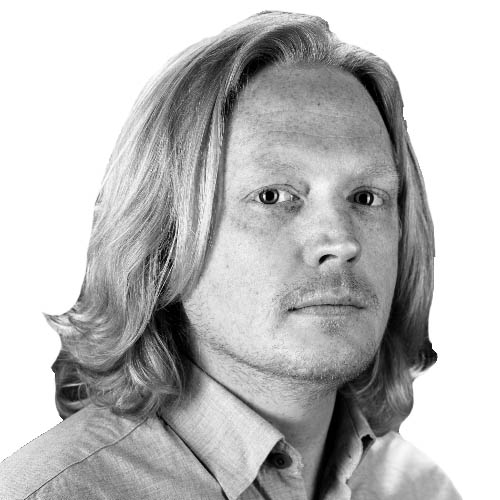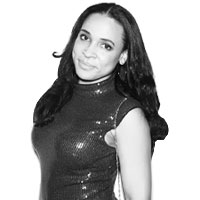The decision to arrest three more officers in the death of George Floyd and increase charges for the first did little to diminish street protests across the country Wednesday although there appeared to be fewer violent flashpoints over night.
Whether it was New York, or Washington, or Minneapolis, those marching and kneeling and observing moments of silence said the demonstrations—and the accompanying unrest—would not end any time soon.
“We need to be out here, as much as we are. If we keep up the pressure we can get the change that we want,” Devante Newsome, 26, who lives in southwest D.C., told The Daily Beast.
Newsome, who is black and Filipino, said he had been on the streets of Washington—which had begun to resemble an armed camp, with soldiers and even prison cops out in force—every day since Saturday.
The new legal action announced in Minneapolis was “a start,” he said. “But we want change to start from the top. We want change to come from the inside. That’s the only way it’s going to change. But it’s a start.”
In Brooklyn, New York. a 15-year-old who gave his name as Amadou said, “This is one situation out of like 1,000. There’s a lot of my brothers and sisters that still don’t have their justice.”
And in the Flatiron district of Manhattan, Christopher John, 30, said simply, “Let’s just keep fighting.”
Across the country—whether the result of the charges in Minneapolis, curfews, or sheer exhaustion—protests took on a calmer vibe in many places on Wednesday. In Washington, the air filled with both the whir of a helicopter flying above and the sound of thousands singing “Lean on Me,” using phones to light up the dusk.
As night fell, there was none of the widespread looting or arson seen in major cities earlier in the week, though police-protester relations had not exactly warmed up. (“Donald’s bitches!’ some protesters chanted at a police line not too far from the White House.)
And the air was still thick with the potential for chaos. In New Orleans, police unleashed what appeared to be gas or smoke to disperse a peaceful protest crowd that had streamed onto an interstate,
In downtown Brooklyn, as a crowd of about 400 walked near Cadman Plaza, a knot of young people surrounded a cop car, holding up a “Suck my dick” sign.
Officers rushed them and grabbed one, and then as many as 200 officers surged in. A half-dozen more people were arrested, a few bikes were tossed, a young woman hit by a baton ended up on the ground, where she was tended to by a firefighter. A tense standoff between cops and protesters ensued where peace had prevailed minutes before.
A downpour dispersed the restive crowd. “The rain is an amazing deterrent,” one cop said to another.
In Los Angeles, the turnout was massive: thousands filling Spring Street in downtown to chant the names of George Floyd and Breonna Taylor, the black woman killed in Louisville during a possibly illegal police search.
They wore almost all black, spurts of color coming from signs emblazoned with slogans: “I can’t breathe,” “Black Lives Matter,” and “I have a right to exist.” Several marchers beat drums; another held a megaphone, leading the crowd in call and response. Cars lined the nearby streets, honking in support.
While Floyd was very much on the protesters’ minds and signs, the target of that rally was Los Angeles District Attorney Jackie Lacey, who has been blasted for resistance to prosecute officer-involved shootings and also disgraced Democratic donor Ed Buck, who is accused in the drug-related deaths of black men.

A protester speaks to National Guard troops posted outside the Los Angles District Attorney’s office.
Mario Tama/GettyIn Minneapolis, protesters had gathered during the day at the spot where Floyd, 46, was killed last Monday. In the evening, several hundred converged on the boarded up headquarters of the police and fire union to call for the resignation of the police union president, Bob Kroll.
Already a divisive figure in Minneapolis, Kroll has come under increased scrutiny since a letter to police union members surfaced in which he said the officers now under arrest for Floyd's killing were fired from their jobs without “due process.” In the same letter, Kroll said protesters were part of a “terrorist movement” and that “the media will not air” the “violent criminal history of George Floyd.” (Floyd spent five years in prison for an armed robbery and has several other charges in his past, The Daily Mail reported last week, although it's unclear whether any of the officers involved in his killing knew that at the time.)
Former Minneapolis police chief Jenee Harteau on Monday called on Kroll to resign, saying he is a “disgrace to the badge.”
Standing on both sides of University Avenue in the city's Northeast neighborhood, protesters called on passersby to honk their horns in support, which many did.
“I’m hoping that this will put pressure on Minneapolis police, because they elect him and they can remove him,” said Laurel Turrek, 48. “We don’t know if the governor has any power to help get him out, but he’s been working without oversight for a very long time.”
Kroll has a controversial history. In 2007, five black officers sued him for racial discrimination, alleging racist practices within the Minneapolis Police Department, and noting that Kroll called Attorney General Keith Ellison, who is Muslim, a “terrorist.” (The same lawsuit alleged that Kroll wore a white power patch on his motorcycle jacket.)
Kroll has also said he isn't bothered by any of the shootings he was involved with during his time as an officer with the department, and attended a Trump campaign rally in which he decried Barack Obama’s “oppression of police.” He argued a president Trump would allow officers to “put the handcuffs on the criminals instead of us.”
Across from the exact spot where Floyd died, a large crowd gathered in the parking lot of a shuttered gas station to hear Rep. Ilhan Omar (D-MN) speak. She was barely visible in the middle of a scrum, but her voice boomed from a PA.
“What we want is the ability to not just breathe, but to live and thrive,” she said to cheers. “From the days of enslavement, to having African Americans lynched, to Jim Crow and now to police brutality, this needs to end, and we do that by recognizing the problem.”
When she was done, a speaker pleaded for residents to go home in groups, reminding them a curfew was going into effect at 10 p.m.

A protester speaks to National Guard troops posted outside the Los Angles District Attorney’s office.
Mario Tama/Getty
People take part in a die-in in Boston, Massachusetts.
Joseph Prezioso/AFP via GettyMajor cities across the U.S. had been under curfew for several days, but enforcement was relaxed in many places on Wednesday night. Los Angeles said it would lift its curfew on Thursday if all remained calm.
In Detroit, where police have arrested hundreds of protesters across the week, Police Chief James Craig let the crowds stay out past curfew, saying he wanted to “support these young people having their voices heard.”
He took note of what had happened in Minneapolis earlier in the day, when state Attorney General Keith Ellison announced the new charges against all four cops involved in Floyd’s deadly arrest.
“This is a day of celebration,” Craig said.







